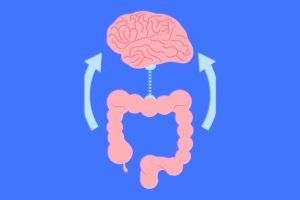Recent years have seen a growing interest in the relationship between caffeine and cardiovascular health. A key question remains: what amount of caffeine consumption is safe?
In this review, Medical News Today examines the latest research on caffeine’s effects on heart health, summarizing significant findings and insights.
Positive Effects of Caffeine on Cardiovascular Health
Some studies suggest that moderate caffeine consumption can enhance vascular health and lower the risk of type 2 diabetes. However, other studies caution that excessive intake may increase the risk of stroke.
Millions of people regularly consume coffee. Many drink it in the morning to boost alertness and reduce fatigue, while others enjoy it throughout the day for various health benefits.
Given that coronary heart disease causes approximately one in seven deaths worldwide, the potential cardioprotective effects of coffee are a compelling subject of study.
The most recent research, published in Rheumatology on October 9, indicates that higher caffeine intake from sources like coffee, tea, and cocoa may improve blood vessel health. This study is particularly noteworthy as it focused on patients with lupus, an autoimmune disease linked to a higher risk of stroke, heart attack, and cardiovascular disease.
Evaluating the Evidence: Can Coffee Enhance Heart Health?
What does the current body of evidence suggest? Does coffee promote heart health, or can excessive consumption be harmful?
Building on Medical News Today’s detailed reporting on heart health studies, this summary presents key research findings on caffeine’s impact on heart and overall health, accompanied by expert opinions.
Can Coffee Reduce the Risk of Diabetes and Heart Disease?
A study published in September in the Journal of Clinical Endocrinology & Metabolism suggests that moderate coffee and caffeine consumption may help prevent type 2 diabetes, coronary heart disease, and stroke. The most beneficial amount was found to be around 200–300 mg daily, or about 2-3 cups of coffee.
Key Findings:
- Researchers compared individuals who consumed less than 100 mg of caffeine daily with those who consumed 200-300 mg daily (about three cups of coffee).
- The latter group had a 48.1% or 40.7% reduced risk of developing cardiometabolic diseases.
- Data from over 360,000 individuals aged 37–73 from the UK Biobank was used in the study.
- Melanie Murphy Richter, MS, RDN, a registered dietitian nutritionist not involved in the research, explained that caffeine might reduce type 2 diabetes risk by enhancing insulin sensitivity and boosting fat metabolism, thus supporting overall cardiometabolic health.
- Cheng-Han Chen, MD, a board-certified interventional cardiologist, cautioned against overestimating caffeine’s benefits, noting that coffee and tea contain numerous bioactive compounds such as flavonoids, alkaloids, and polyphenols, which may have antioxidant and anti-inflammatory effects beyond caffeine itself.
Risks of Excessive Caffeine Consumption
A study presented at ACC Asia 2024 in August found that chronic high caffeine consumption might increase cardiovascular disease risk, even in otherwise healthy individuals.
Key Findings:
- Chronic caffeine consumption was defined as drinking caffeinated beverages—such as coffee, tea, soda, and energy drinks—at least five days a week for over a year, equating to about 400 mg of caffeine daily (roughly four cups of coffee, two energy drinks, or 10 cans of soda).
- The study indicated that people consuming at least 400 mg daily had increased heart rates and blood pressure over time, with more pronounced effects for those consuming 600 mg daily.
- Nency Kagathara, MBBS, the study’s lead author, noted that regular caffeine consumption might pose risks of hypertension and other cardiovascular events due to its effects on the autonomic nervous system, highlighting the importance of awareness to improve heart health.
Coffee, Tea, and Stroke Risk
According to a study published in the Journal of Stroke on September 27, high consumption of carbonated drinks, fruit juices, and coffee may increase stroke and intracerebral hemorrhage risk, with variations depending on the population and geographical location.
Key Findings:
- Drinking more than four cups of coffee daily increased the likelihood of stroke by 37%, whereas moderate consumption (less than four cups daily) did not show a significant increase in stroke risk.
- Data was collected from a large participant pool across 32 countries.
- The study found that drinking three to four cups of black tea daily reduced stroke risk by 29%, with regional differences in tea’s effects.
- Christopher Yi, MD, a board-certified vascular surgeon not involved in the study, emphasized that moderation is safer than excessive consumption, noting that caffeine in coffee can raise blood pressure and stroke risk.
In summary, while moderate caffeine consumption can offer health benefits, excessive intake may pose risks, highlighting the importance of moderation in dietary habits.




